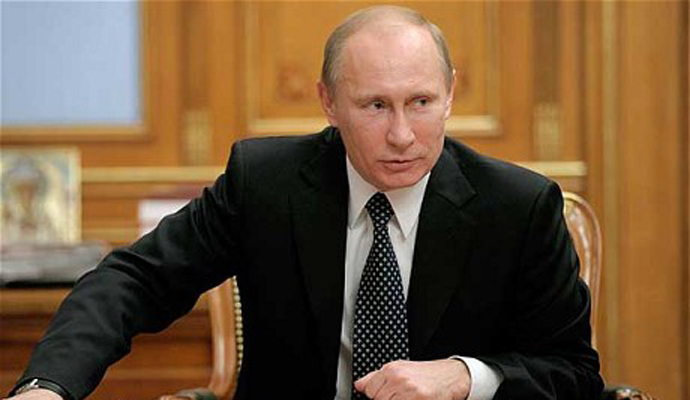Russian President Vladimir Putin on Wednesday tasked officials with launching mass coronavirus vaccinations from next week, touting Russia's homemade jab as the world's best.
After being the first country to register a vaccine for use, Russia is looking to leap ahead of other countries in the race to inoculate its population of 146 million.
Russia in August registered Sputnik V -- named after the Soviet-era satellite -- months ahead of Western competitors but before the start of large-scale clinical trials, which left some experts wary.
"I ask you to begin the mass vaccination of the entire population next week," Putin told officials at a televised government meeting.
"The Russian vaccine is the best in the world," he added.
Putin said Russia should "get relevant infrastructure ready" to boost production of the vaccine, which Moscow is promoting to other countries as cheaper and easier to transport than others jabs.
"Thank God our vaccine does not require extreme conditions during transportation," Putin said.
"This is much simpler and more effective," he added, referring to Western-made jabs.
Deputy Prime Minister Tatyana Golikova told Putin during the meeting that Russia was ready to launch the mass vaccination from Monday.
"We will have to pretty seriously ramp up the vaccination campaign," Golikova added, noting that more than 2 million doses will be made available by the end of January.
Some experts are sceptical however, saying Russia's biotech industry depends on foreign reagents and equipment and that the country may not be fully prepared to launch mass production of coronavirus vaccines.
Putin had himself said in October that Russia did not have enough equipment to launch the mass vaccine rollout.
"The vaccine cannot be produced in three to four days," said Saint Petersburg-based geneticist Kirill Volkov.
He noted that adenovirus-based vaccines like Sputnik have never before been mass-produced in Russia -- or elsewhere -- and said production snags were likely.
"It's new territory," he told AFP.
But Anton Gopka, co-founder of biotech investment firm ATEM Capital, said he was "quite optimistic" about Russia's production capabilities.
He noted however it was not clear if all Russian companies tasked with producing vaccines had managed to set up mass production lines.
"It is hard, but it is a standard process of trial and error, stabilisation, scaling and quality control," he said.
"It may take more weeks to reach full capacity and comply with international documentation, but quality is more important than speed."
Russia began vaccinations with Sputnik in early December even though it was still in its third phase of clinical trials, inoculating workers at high risk of becoming infected.
The Sputnik V vaccine uses two different human adenovirus vectors and is administered in two doses with a 21-day gap.
It can be stored at between two and eight degrees Celsius (between 35.6 and 46.4 degrees Fahrenheit) instead of the temperatures far below freezing required for some other vaccines.
Russia has also registered a second coronavirus vaccine, EpiVacCorona.
The country has in recent months been battered by a second wave of coronavirus infections but the Kremlin has held back from introducing sweeping restrictions like in the beginning of the pandemic.
Recorded new daily cases have been decreasing in recent days.
As of Wednesday, authorities had reported more than 3.47 million infections and more than 63,000 deaths, although analysts say that Russian health authorities have been under-reporting the country's fatalities.
Russia in December said its coronavirus death toll was more than three times higher than it had previously reported, making it the country with the third-largest number of fatalities with more than 186,000 deaths.
On Monday, Russia said 1.5 million people around the world had received Sputnik V, though it did not provide a breakdown by country.
